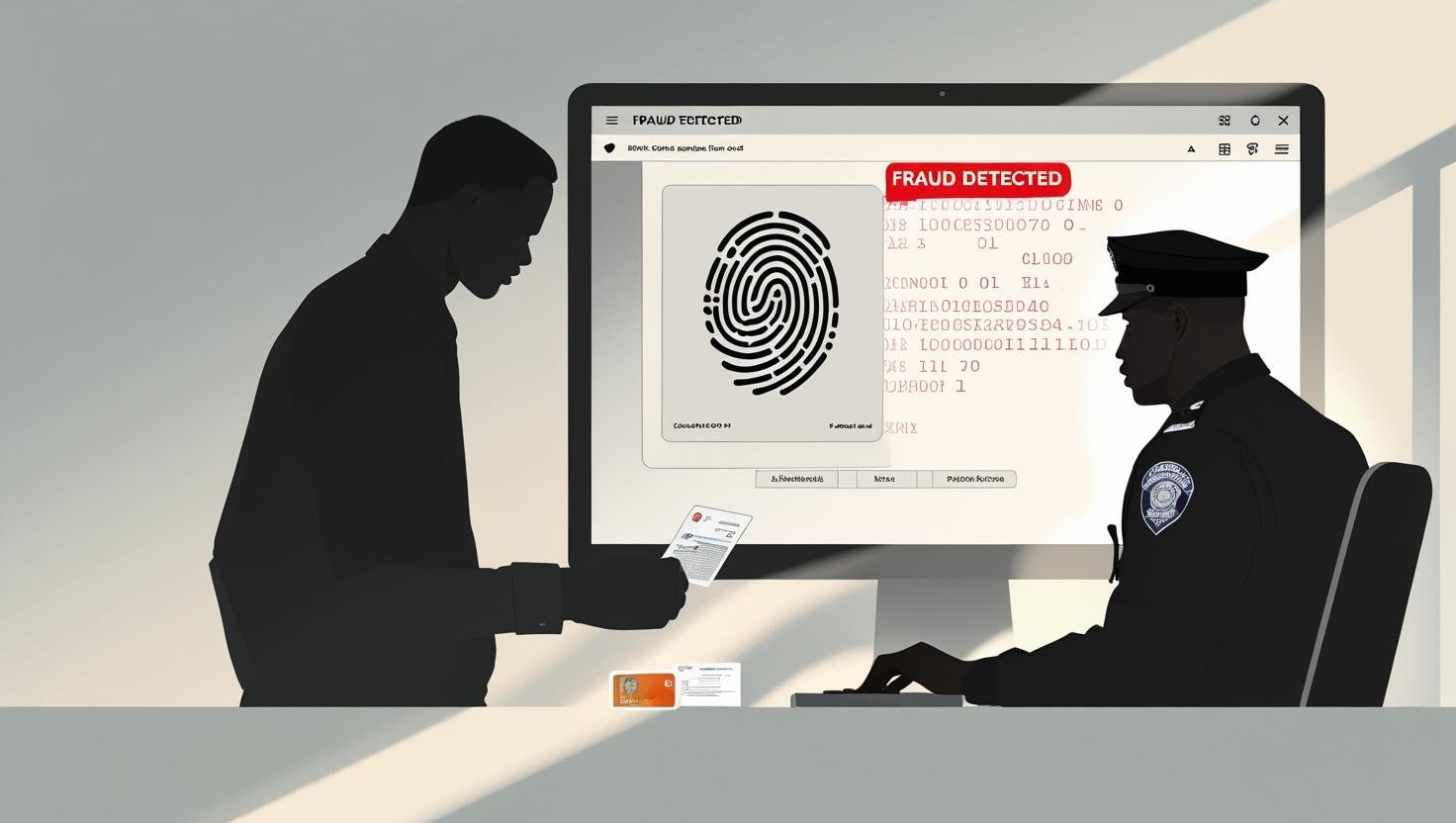A multi-layered scam has been unearthed in the Madhya Pradesh Police Constable Recruitment Examination 2023, exposing how fraudsters exploited Aadhaar biometric systems to enable large-scale impersonation. With at least 20 FIRs filed and 13 arrests made so far, the scandal reveals a deep-rooted network involving exam aspirants, professional solvers, Aadhaar kiosk operators, and suspected interstate operatives.
The fraud came to light in 2025, nearly two years after the exam was conducted by the MP Employee Selection Board (MPESB), during the joining process of selected candidates. A mismatch between Aadhaar-linked photos and the individuals who turned up for physical verification triggered a state-wide investigation.
Impersonation via Aadhaar Manipulation: How the Fraud Worked
According to police, the perpetrators manipulated the Aadhaar biometric updation system to bypass identity checks during the recruitment process. Investigators say fraudsters charged aspirants up to ₹10 lakh for a complete identity swap—using one person (a “solver”) to write the exam and another to appear for the physical test.
The process involved updating fingerprints on Aadhaar with a 78% match threshold, exploiting a legitimate provision meant for improving fingerprint quality. The original candidates would provide all but the thumb impression, while the solver would supply the thumb. Once updated, the solver could pass biometric authentication at the exam centre using the modified Aadhaar.
To make detection harder, candidates were asked to upload hazy photographs during Aadhaar updates. Solvers were brought in from Bihar, Uttar Pradesh, and Madhya Pradesh. In several cases, a single solver sat for multiple exams. Authorities say a solver from Sheopur charged ₹3 lakh per candidate and impersonated at least 10 people.
The breach came to light when officials cross-verified live videos and photos from examination centres with those presenting for document verification and joining. Discrepancies in facial appearance and biometric mismatches raised immediate red flags.
FCRF x CERT-In Roll Out National Cyber Crisis Management Course to Prepare India’s Digital Defenders
Masterminds, Operators, and the Criminal Network
The main accused, Shyam Meena and Amitabh Rawat, coordinated the scam, recruiting solvers and arranging biometric alterations through unauthorized Aadhaar kiosk operators. Police revealed that Abhijeet Banjara from Chhattisgarh supplied kiosk IDs to Surendra Kushwaha in Sheopur, who ran illegal Aadhaar update operations using remote-access tools like AnyDesk.
So far, 30 candidates have been identified as having suspicious Aadhaar activity—particularly multiple updates within three to four days prior to the exam. In at least 20 of those, clear mismatches were found between the individuals who took the test and those reporting to join duty.
Three solvers—Ranjan Kumar (selected in a Bihar teacher exam), Satendra Rawat (Morena), and Ganesh Meena (Sheopur)—have been arrested for appearing in at least 13 exams. FIRs have been lodged in multiple districts, including five in Gwalior alone.
Police are now urging the Unique Identification Authority of India (UIDAI) to implement stricter controls on Aadhaar updates, including limits on frequency and enhanced scrutiny of operator activity. “We’ve written to district police units to examine Aadhaar update history of all candidates since 2023,” said DIG Virendra Singh, who is leading the recruitment wing’s inquiry.
Systemic Vulnerabilities and Urgent Reforms
Although UIDAI CEO Bhuvnesh Kumar denied any systemic flaw in Aadhaar’s core design, he admitted that the fraud exploited the trust-based model for kiosk operators. “This wasn’t a technical breach, but a deliberate misuse of the protocol by operators in collusion with exam solvers,” he clarified.
MPESB Director Saket Malviya said the board is now exploring the integration of iris recognition technology at examination centres to curb impersonation. He emphasized that their current system is secure, but evolving tactics by fraudsters demand constant upgrades in verification processes.
Experts and law enforcement officials believe the racket could be part of a larger, pan-India syndicate that targets government exams reliant on biometric authentication. Gwalior SP Dharamveer Yadav called the current findings “just the tip of the iceberg.”
As investigations deepen, the Madhya Pradesh exam scam serves as a wake-up call for authorities to reevaluate the checks and balances in digital identity verification systems, particularly where lives, careers, and public trust are at stake.



